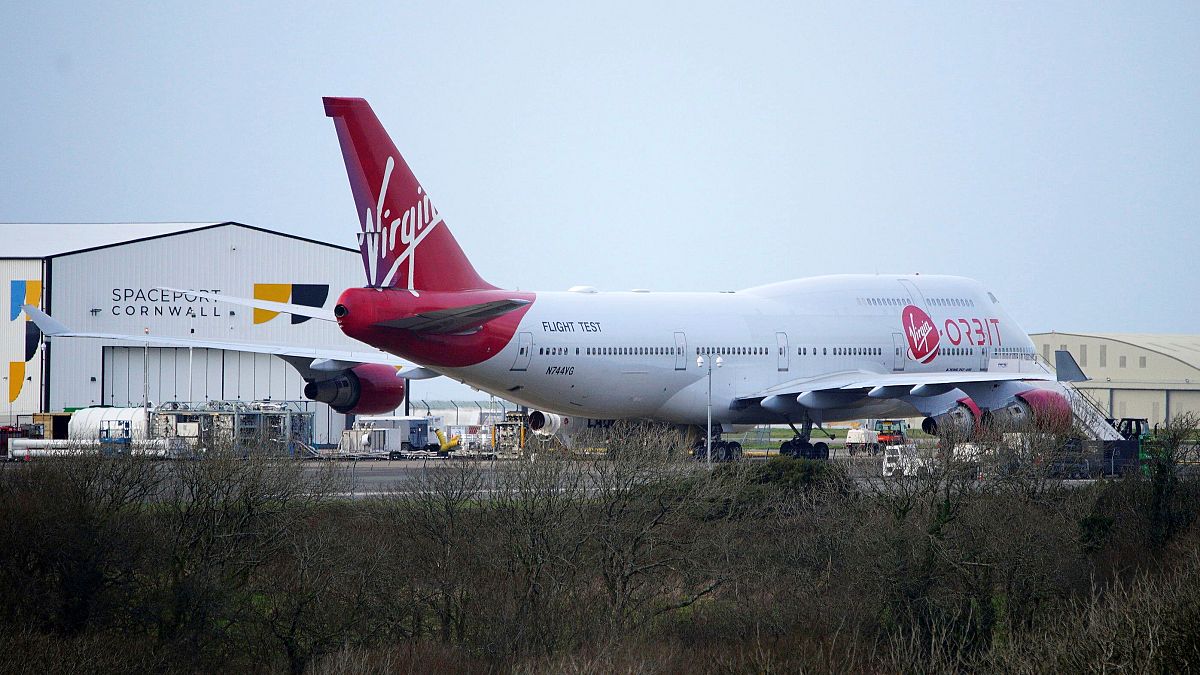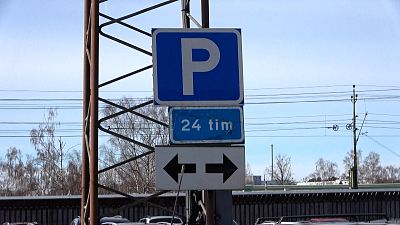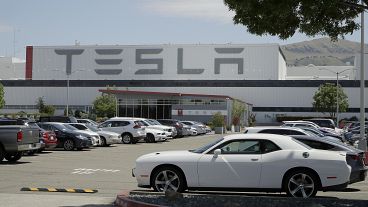The Virgin Orbit launch from Cornwall was to be the first of an orbital satellite from the UK - but it ended in failure.
Monday night was supposed to be an historic moment for the UK's space industry - with the first orbital satellite launch from western Europe.
But Virgin Orbit, the company behind the rocket carrying the payload of mixed-use satellites, said the rocket failed to reach its orbital target due to an "anomaly".
The company said in a statement "at some point during the firing of the rocket’s second stage engine and with the rocket travelling at a speed of more than 11,000 miles per hour, the system experienced an anomaly, ending the mission prematurely".
The attempt took off from a small seaside town on the UK’s Cornish coast, where final preparations had been made, and crowds of onlookers had gathered, ahead of what was supposed to be a milestone moment for the UK's space ambitions.
If successful, it would have been the first orbital satellite launch from the UK - and western Europe.
All of Virgin Orbit's previous forays into space to deliver satellite payloads had launched from US soil. This launch from Corwall was the first of what the UK hoped would be a number of launches, with its regulator, the Civil Aviation Authority (CAA) processing applications from other locations for further launches, including from a spaceport in the Shetland Islands in the north of Scotland.
“I look forward to seeing more launches from other UK spaceports over the next year, putting us firmly on the map as Europe’s leading destination for commercial small satellite launch,” said the UK Space Agency’s deputy chief executive Ian Annett ahead of the failed launch, who said it would mark “a new era for space in the UK”.
How did Cornwall swap surfing for space?
Spaceport Cornwall is located at a regional passenger airport in Newquay, which is known more for its beaches and surfing scene than its connection to the space industry.
The mission was originally planned for late last year, but it was postponed due to technical and regulatory issues.
A collaboration between the UK Space Agency, the Royal Air Force, Virgin Orbit, and Cornwall Council, the launch is unique in that a rocket will be fired into space from a repurposed passenger plane.
It was the first international launch for Virgin Orbit, the US-based company founded by British billionaire Richard Branson.
How did the launch happen?
The LauncherOne rocket and its payload was lifted to around 10,000 m - around 32,000 ft - on a repurposed Virgin Atlantic Boeing 747 christened ‘Cosmic Girl’ before being released and blasting off for space.
It was carrying several small satellites for civil and defence use in orbit; uses that would have included reducing the environmental impact of production, preventing illegal trafficking, smuggling, and terrorism, and a host of national security functions.
Cosmic Girl returned successfully to the landing strip in Newquay.
The rocket however failed to reach orbit. Virgin Orbit said it ignited its engines, and quickly went hypersonic, successfully reaching space. It continued through a successful stage separation and ignition, but an anomaly meant it failed to reach orbit.
All eyes were on the launch and its potential significance for the UK's space ambitions and the space industry.
"A traditional way of launching fixes you in one given location on the planet, and then you have a set of orbits that are associated with that one location," said Omar Hernandez, Director of Mission Management at Virgin Orbit.
"If we are able to take that one fixed point and move it around, then now we have many different orbits accessible to that one launch location," he explained.
Annett added that previously no satellites have been launched into Europe yet, so “it’s an immensely exciting opportunity for us”.
With a space industry worth more than £16.5 billion (€18.74 billion) a year to the UK’s economy, "being able to capture part of that market on an expanding launch market is really, really important for us," he said.



